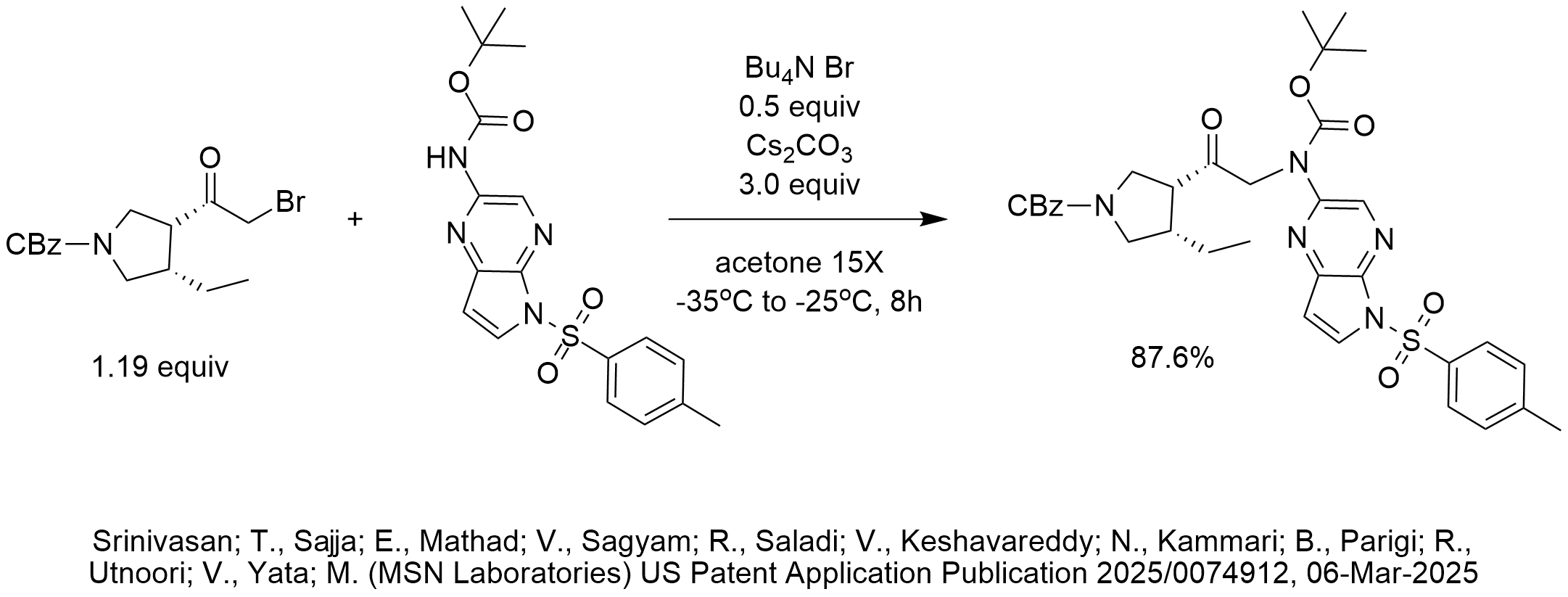The PTC N-alkylation shown in the diagram uses cesium carbonate to deprotonate the relatively acidic N-H that is part of a carbamate on one side and conjugates to an aromatic ring on the other side. The reaction conditions chosen used dry acetone (over molecular sieves). Of course, a phase-transfer catalyst was used to transfer and activate the N-anion in the acetone phase where is reacts with a bromomethyl ketone [(3R,4S)-benzyl 3-(2-bromoacetyl)-4-ethylpyrrolidine-1-carboxylate].
The reaction was performed at the low temperature of -25 deg C to -35 deg C, possibly to avoid racemization in the alpha to the ketone position in the presence of the cesium carbonate base.
A question that could be asked is whether the expensive cesium carbonate is required or would the much less expensive potassium carbonate be sufficient to perform the reaction while minimizing racemization?
We asked ChatGPT if potassium carbonate could be used instead of cesium carbonate. ChatGPT’s response was: “Cesium carbonate, being more soluble in acetone and a stronger base in organic media than potassium carbonate, will more effectively deprotonate the N–H to form the reactive anion in situ. This is critical because the reaction occurs in essentially anhydrous acetone, with molecular sieves added — water is minimized, meaning carbonate must dissolve or suspend effectively in organic phase to function.”
While we obviously agree that cesium carbonate is more soluble in acetone than potassium carbonate, especially in dry acetone, there are specialized PTC techniques that must be screened to see if the much less expensive potassium carbonate can be used in this application.
Since Dr. Marc Halpern of PTC Organics Inc has nearly 49 years of experience in PTC-base systems, these highly specialized techniques are known whereas ChatGPT is still not yet at the level of expertise to be able to suggest the specific PTC process conditions that may save companies a lot of money.
If your company wants to benefit from these 49 years of highly specialized expertise of Dr. Marc Halpern in industrial phase-transfer catalysis, now contact Dr. Halpern to explore PTC Process Consulting or Industrial PTC training at your company.


